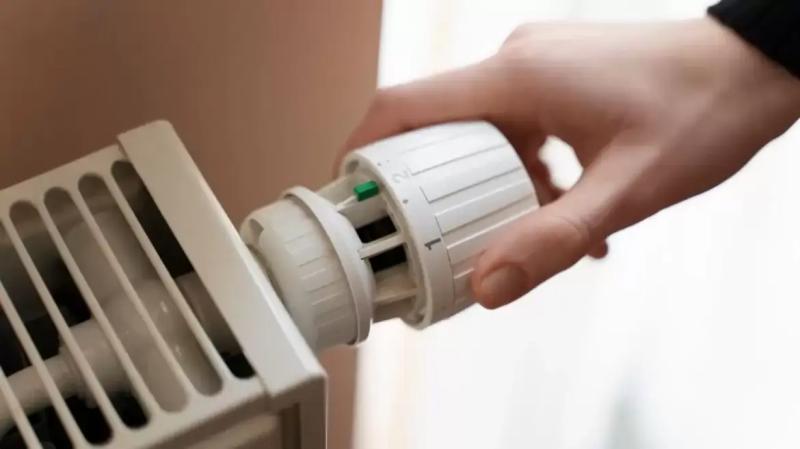
How to reduce heating bills if you have your own heating system
0
If your house or apartment is not connected to a district heating system, then you know how big utility bills can be, especially during the coldest periods of the year. However, there are many ways to minimize these costs.
See also The best devices for heating an apartment before turning on the heating
Take care of your heating system
Even before the start of the heating season, be sure to inspect your equipment. Annual maintenance of appliances will allow you to detect possible damage or other problems in advance, as well as to fix them when you do not need heating yet. So breakdowns will not catch you by surprise in the middle of severe frosts.
Systematic removal of deposits and dirt accumulated inside the system will have a positive effect on its operation. You will definitely feel it in practice and see it in your accounts. Keeping your system clean and free of sediment will also have an overall positive effect on the life of your heating system.
If you are buying a new boiler, ask a specialist in the store to confirm that the unit is set for maximum efficiency. Even so, you may still need to inspect and flush it with special equipment before installation. This can be done, for example, by the maintenance service of the manufacturing company.
Make sure your boiler is working efficiently
Read the user manual carefully to find out about all the functions and benefits that your boiler offers. Often they can hide something that will reduce gas or electricity consumption. If you've lost your manual, you can usually find it online by typing in your appliance model.
Adjustment plays a key role in the performance and efficiency of your heating system, but many homeowners overlook it.
Use timer or boiler programming
The timer allows you to plan the time of turning on and off the boiler during the day. This gives you even more control over costs by allowing you to set different times and temperatures. In this way, you can, for example, set the system to turn off during the working day when you are not at home, and turn it on an hour before you return, so that the apartment has time to warm up.
Do you smell an unpleasant smell?
A working boiler should never emit an odor. If this is the case, it is necessary to call a specialist immediately. The smell can be a sign of internal contamination or a gas leak.
Check if the radiators are balanced
Balancing the heating system means optimizing the distribution of heated water through radiators (batteries in rooms). This increases efficiency and comfort, and also reduces energy consumption.
In order to deliver the correct heat output, each radiator needs a certain water flow. If this is unbalanced, some radiators can take up most of the hot water flow from the boiler, leaving other radiators with not enough water. This, in turn, affects the efficiency of the boiler and the comfort in your home, as some rooms overheat while others remain cold.
Also, radiator valves with too much flow may not work properly, so you will hear loud water flow sounds as they start to close as the room temperature rises.
To solve the problem when radiators are all are still cold, you may be tempted to raise the temperature on the thermostat to a higher level. This may help, but will increase costs.
If you are installing a new boiler, your system will need to be rebalanced. After installing the boiler, ask your heating engineer to confirm that your system has been balanced before paying for the installation.
Reduce the water supply temperature in your boiler
The boiler should be set to the highest temperature only in cold winter. Otherwise, the boiler unnecessarily heats the water to a very high temperature and wastes energy. If you heat water and then mix it with cold water in the shower, it means that part of the energy just went nowhere.
See also Stay safe: 7 rules for using a heater in the cold season
Set the thermostat
The thermostat is a device that regulates the temperature in the room, providing efficient and comfortable heating. It controls the operation of heaters, boilers or underfloor heating, automatically turning them on or off depending on set parameters, for example, the current temperature you have defined as comfortable.
How the thermostat works:
- Temperature measurement. The built-in sensor reads the current air temperature.
- Analysis of indicators. The device compares the actual temperature with the one set by the user.
- Heating system control. If the temperature is lower than the set, the thermostat activates the heating device. If it is higher, it turns it off.
Think about heating zoning
In a large house, you may not need heating in all rooms, or you may be able to afford to keep certain rooms at a lower temperature than others.
Instead of one room thermostat, you may have separate heating circuits, each with has its own room thermostat. This will allow you to zone the temperature in different areas of your home.
If you have a smart thermostat, you can also use smart radiator valves to create heating zones in different rooms.
Setting a lower temperature in parts of the house that you don't use often, such as a spare bedroom where guests only occasionally sleep, or heating some rooms only at certain times of the day, such as the office, will help save energy and money.
< h2>Insulate your home
In winter, heat escapes from all heated spaces into unheated attics, garages, basements and outdoors. Heat can also be lost through interior ceilings, walls and floors – anywhere there is a temperature difference as heat moves from warmer to cooler areas.
To maintain comfort in your home, heat lost to nowhere must be replaced by your heating system. So you pay more for heating than you could.
Insulating your home will reduce this heat flow by resisting heat loss. This will reduce your electricity bills. Find out how energy efficient your home is now and use insulation services.
External insulation spoils the appearance of facades, turning our multi-storey buildings into an unsightly multi-coloured kaleidoscope. But you can do the same during the renovation phase inside. Choose the right materials, install good windows, and you will have less need for heating in winter, which will save you money.
This is certainly one of the most effective ways to save money on heating. But these are the measures that need to be properly planned and carried out in advance before the heating season begins.
Energy efficiency
If your boiler is very old, it may have an inefficient design. In this case, in order to save money in the future, you can replace it with a new one.
Modern boilers can consume fewer resources than technologies of yesteryear. Therefore, it makes sense to find out from different manufacturers what consumption their products offer and choose the one that is right for you.
Ventilate the room properly
Instead of ventilating the room once for an hour, it is better to do it several times a day for 10-15 minutes. This way, your home will cool down less and recover heat faster.









Leave a Reply